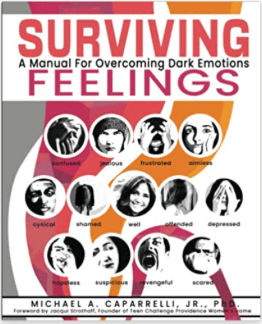Copyright © AriseandShine.Org
A Prisoner's Guide to Saving a Life
by David Berkowitz
This paper was prepared for my final project and presentation for the Inmate Program Assistant retraining course as mandated by the New York State Department of Correctional Services so that an inmate can retain his "IPA" certification.
Ms. W. Bruno,
Offender Rehabilitation Counselor
COURSE GIVEN: November 2011
TOPIC:
Suicide is Everyone's Business - A Lay Person's Guide to Saving a Life
PRESENTATION:
I'm here to talk about suicide. More specifically, how you or I could possibly save someone's life. Trying to prevent another inmate from taking his life is your business. It is my business, too. This is because we live in a community. And if we don't look out for each other, who will? The staff? Sometimes. But they're not watching us every minute of the day. No, we're the ones who have to look out for one another.
We know each other's routines, habits and personalities. So any variations and changes in any of these things will usually be noticed by us well before the staff notices them. And such changes, if they're negative ones, can be a sign that something is troubling him, that something may be going badly in his life.
And this is what this presentation is about: Learning how to watch for signs and signals which indicate that my neighbor is depressed or even suicidal, and how to reach out to him in his time of crisis and emotional need.
There are usually telltale signs when a man is beginning to lose hope and give up on life, and is perhaps even thinking of taking his own life.
Signs & Signals:
-He begins to withdraw socially.
-He starts to withdraw from his usual activities.
-He seems to have lost interest in life.
-You start to notice things different about him.
-Like he has lost his sense of humor and doesn't laugh at jokes anymore.
-Or he seems unusually sad, tired and listless, and seems to have lost his usual levels of energy.
-He becomes very hyper, agitated, nervous, excitable and jittery.
-He appears to often be deep in thought and has a "faraway" look about him.
-Gives things away: his belongings & personal possessions.
-He starts to say things like, "It was nice knowing you." "I'll see you around." "I just want to say goodbye." "Take care, dude." Saying things that are not appropriate and odd, which leaves you with an odd and puzzled feeling.
-Obvious depression, a downcast Expression, his shoulders are slouched, has a drooping posture and looks almost sickly.
-May start to neglect his appearance and hygiene.
- He seems more agitated than normal.
- Doesn't make eye contact as he'd normally do.
- Your gut instinct tells you he doesn't look right. He's not talking or acting right, that something is bothering him and is on his mind, and appears distant in his thoughts.
This is not meant to be an exhaustive list. And some of these signs and signals may overlap. In rare cases, you may not notice any signs or signals at all. Most often, though, a suicidal person will give off lots of signs, and he may not even be conscious of the fact that he is doing so. Which is why, obviously, it is up to each of us to be a keen observer of our fellow offenders, so we could hopefully notice anything that's amiss and intervene.
What Can You Do?
What can you do if you observe a fellow inmate showing one or more of the before mentioned signs and signals? You can start up a conversation with him. "Hey, Joe, is everything okay? You don't seem to be yourself lately. You look as if you've got a lot on your mind. You wanna talk about it? I'm here for you. What's up?"
Or you could say, depending on the situation, "You've been acting strange lately. How come I haven't seen you smile in a while?" Then you could be creative and add, "You haven't been laughing at Frank's jokes anymore. Are his jokes that bad?" Here you've added a little humor to help break the ice and maybe get him to lighten up a little and give a smile.
In addition, if appropriate, you could pat him on the shoulder or firmly yet gently grab one of his arms in a playful manner, or you could give him a "high five" slap on the hand.
If he is depressed or suicidal, maybe by talking to him in the ways I've suggested or by touching him in a friendly manner, he'll respond by saying something like, "Yeah, I've been really bummed out lately." He may also reveal what's bothering him. He might say, "My girlfriend hasn't written in over a month, and she's never home when I call. I'm starting to think she's left me." Or he may say, "My brother's phone has been disconnected for two months, and he hasn't answered my last four letters. I'm beginning to think something bad has happened to him."
Once he starts talking to you, with each word he says you're lessening the chances of his hurting himself because now he's starting to get things off his chest. He also senses that you care about him, that you're genuinely concerned for his well-being.
Remember that even in this small amount of human contact and interchange, a lot of good can come about. Getting him to talk and open up is a big step. It could mean the difference between his keeping his thoughts and problems bottled up inside him, or releasing them in the course of normal conversation and thus releasing him from his depressed state of mind.
Remember this saying, "Where there is life, there is hope." So be observant. No one need take his life. Therefore, if you know what to look for (the signs and signals), and by talking to him and reaching out, you can help keep another soul on this earth and out of the graveyard.
End Notes
You hold the key to possibly keeping someone from committing suicide. This is a big responsibility and nothing to take lightly. So be observant.
Reach out to your fellow man if he appears to be depressed. You will never regret doing this, and you have nothing to lose. But you will regret it if you had the opportunity to say or do something, and you did not. As the popular saying goes: "It's better to be safe than sorry."
Also, as a general rule, and this is especially true in the prison setting, men generally tend not to open up to their peers. Unfortunately, there is a lot of deeply ingrained distrust amongst us. There is the "pride" factor as well. Telling someone you feel sad, lonely or depressed is thought of as a sign of weakness.
The belief that a real man has to "muscle up" and stand on his own two feet is part of the unrealistic view of what a man is supposed to be. Because the reality is that every person, be he a resident of a correctional facility or living on the outside of one, has his ups and downs, highs and lows, good days and bad ones. We're not rocks. We're flesh and blood individuals, and all of us have feelings.
Lastly, and this is something we have to be real about, we're not professional mental health experts. Therefore, in many cases, if a man is truly suicidal, we may have to tell a member of the staff about that depressed individual. This is not "snitching." It's called saving a life.
This is also why correctional facilities usually have mental health staff on duty. They are here to handle such a crisis. Think about this, please.
Discussion
If this is being presented in a classroom or group setting, if allowed, the floor can be opened to discussion. All thoughts and ideas are welcome. Experiences with suicide and depression can be shared, if desired.
-End-
I gave this presentation for my final assignment during a retraining course given by the New York state Department of Correctional Services in 2011 at the Sullivan Correctional Facility for those offenders who are certified as an "Inmate Program Assistant," of which I am one.
David Berkowitz
If you, or someone you know, is struggling with suicidal thoughts,
here are some books that might help with those dark emotions:
here are some books that might help with those dark emotions:



